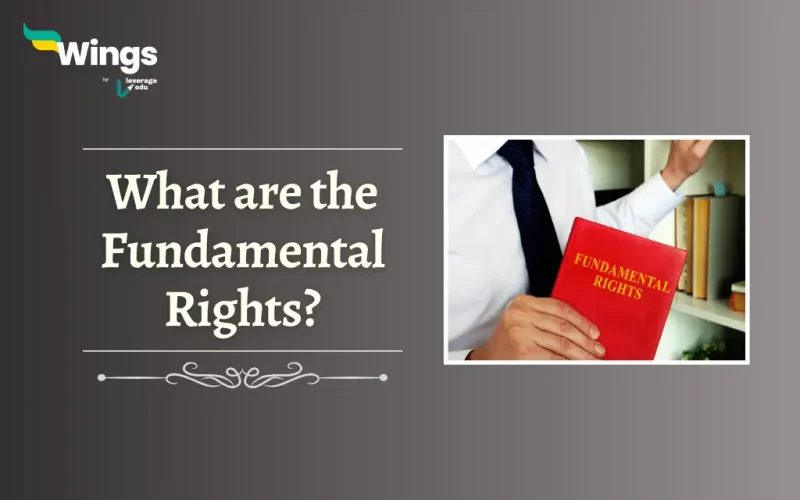According to the Indian Constitution, the 6 Fundamental Rights are Right to Equality, the Right to Freedom, Right against exploitation, Right to Freedom of Religion, Educational and Cultural Rights, and Right to Constitutional Remedies. Moreover, these Rights are protected by the Supreme Court of India. Every citizen of India gets these rights by the time they become a citizen of the country.
Table of Contents
The 6 Fundamental Rights of India
Furthermore, the Fundamental Rights are given to Indian citizens according to the Constitution of India are:
| Fundamental Rights of India | Articles of Constitution |
| Right to Equality | Articles 14 to 18 |
| Right to Freedom | Articles 19 to 22 |
| Right Against Exploitation | Articles 23 to 24 |
| Right to Freedom of Religion | Articles 25 to 28 |
| Cultural and Educational Rights | Articles 29 to 30 |
| Right to Constitutional Remedies | Article 32 |
Earlier, the Right to Property was part of Fundamental Rights but it was removed after the 44th Constitutional Amendment Act of 1978. Additionally, this right is now part of legal rights.
Right to Equality
The Right to Equality is in the following 5 Articles of the Constitution:
- Article 14- Equal protection of laws and Equality before the law.
- Article 15- Prohibition of discrimination on grounds of religion, caste, sex, place of birth or race.
- Article 16- Equality of opportunity in terms of public employment.
- Article 17- Abolition of untouchability and prohibition of its practice.
- Article 18- Abolition of titles except military and academic.
Right to Freedom
Additionally, the Right to Freedom is in the 4 Articles of the Indian Constitution:
- Article 19- Protection of six rights regarding freedom of speech and expression, assembly, residence, and profession.
- Article 20- Protection in a conviction for offences.
- Article 21- Protection of life and personal liberty.
- Article 22- Protection against arrest and detention in certain cases.
Right Against Exploitation
The Right Against Exploitation includes the following Prohibitions:
- Prohibition of Human Trafficking and Forced Labour
- Prohibition of Child Labour
Right to Freedom of Religion
Freedom of conscience and free profession, managing religious affairs, and attending religious instruction or worship in certain educational institutions.
Also Read: The Tropic of Cancer Passes Through How Many States in India?
Cultural and Educational Rights
The Cultural and Educational Rights in the Fundamental Rights are as follows:
- Protection of language, script and culture of minorities.
- Right of Minorities to Establish and Administer Educational Institutions.
Right to Constitutional Remedies
Moreover, the Right to Constitutional Remedies are as follows:
- This Right allows citizens to knock on the door of the Supreme Court of India for justice.
- Empower the Parliament of India to make Fundamental Rights.
Related Blogs
FAQs
The Supreme Court of India protects the fundamental rights given to Indian Citizens.
(1) Right to Equality
(2) Right to Freedom
(3) Right against Exploitation
(4) Right to Freedom of Religion
(5) Cultural and Educational Rights
(6) Right to Constitutional Remedies
Lastly, we hope you liked our blog and gained an understanding of What are the Fundamental Rights. Moreover, you may even read more blogs and empower yourself with knowledge regarding Civics and Polity!
 One app for all your study abroad needs
One app for all your study abroad needs













